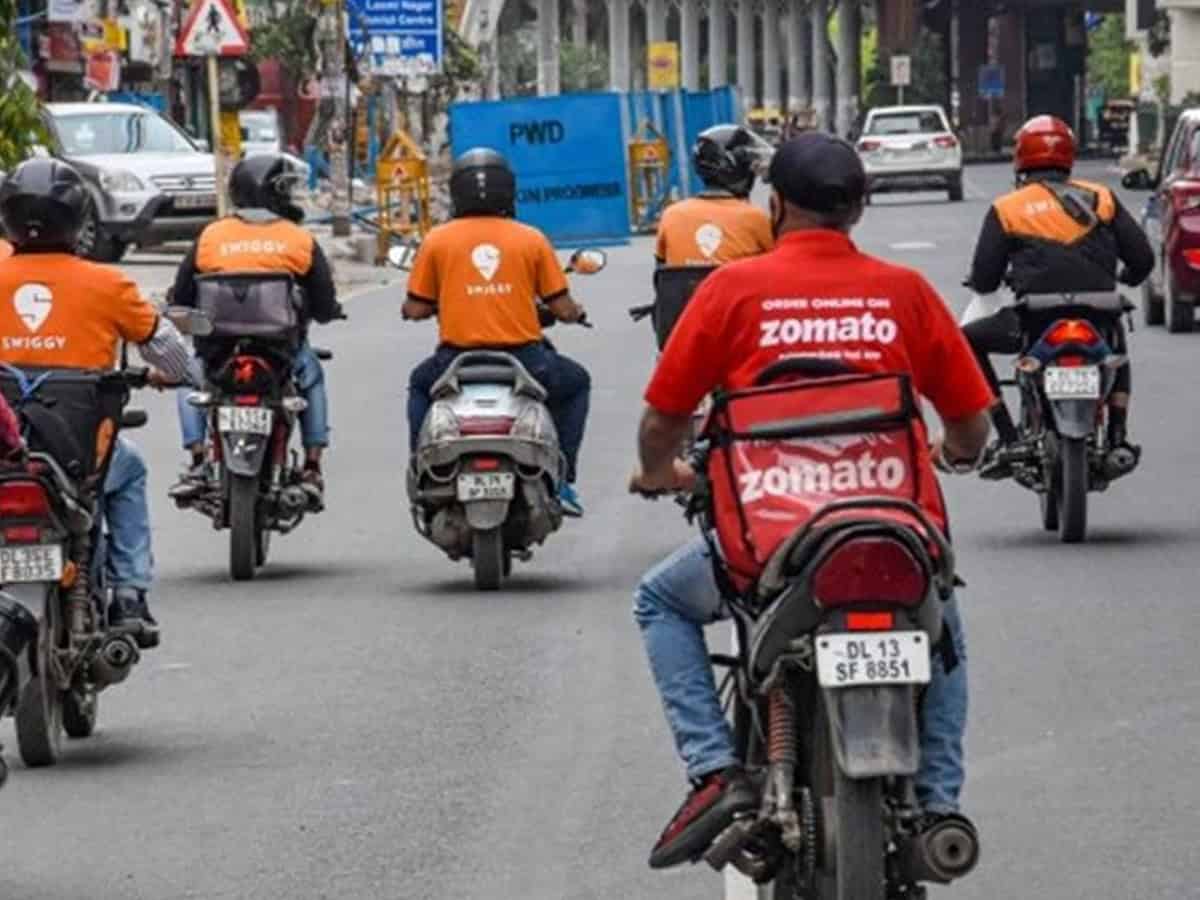
Over the last couple of months, a rising number of cases have been reported of gig-workers experiencing the effects of heat and scorching temperatures across Indian cities. In Hyderabad the recent financialisation has produced a landscape of glossy hi-tech aesthetics, yet high income and social inequality within the city.
What is fundamentally ingrained within the economic conditions of Hyderabad is the nature of work being produced through technology. As reported in an article in the Times of India, Hyderabad is now the second largest base of the gig-economy after Mumbai in the country, holding a majority of Telangana’s 3 lakh platform workers.
After the COVID-19 pandemic, the use of digital app services became rampant leading to incessant growth of delivery-based apps like Zomato and Swiggy hiring “partners” to deliver work services to people’s homes during the pandemic lockdown.
In its 2022 report, Niti Aayog recognised that gig-workers incur “long hours on the platform, decreasing incentives and low earnings.” The same report ended up focusing on the promotion of the gig-economy through terms like “skill-development” and “entrepreneurial spirit” without going to concretely formalise them as “employed workers.”
Gig-economy workers have begun voicing their concerns against the unfair treatment meted to them, be it by the platforms, the restaurants where they have to queue up for long waits and the residential gated communities where they are viewed with suspicion and segregation-style treatment. As laws have emerged across states highlighting social security measures for gig-workers, including the Congress government in Telangana state promising a “Gig Workers Act,” one has to keep in mind the effects of the precariat nature of gig-economy, the larger conditions of climate and the unequal infrastructure of the city on the workers.
As scholars like Vu and Nguyen have noted, the experience of being a precariat worker is marked by conditions of “unstable employment, chronic economic insecurity and ongoing uncertainty.” The management of the digital platforms profit from the rise of the apps, while workers providing the services on the ground barely receive any benefit despite being symbolically called “partners”; having escaped from clearly defined labour for “employed workers.”
Being a precariat worker on the roads also puts workers in scorching conditions of climate change. Heat waves have become a common occurrence in cities. Studies highlight that Indian roads and urban infrastructure re-absorb and emit more heat than natural surfaces in cities making it unbearable for those who have to work on such surfaces without protection.
As a gig-worker, one has to work during “flexible” hours, drive cabs, bikes, scooters and now cycles within the duration defined by tech on the app, failing which one risks receiving lesser ratings, often incurring misbehaviours on part of the customers. Risking heat strokes and undergoing a harrowing experience of everyday commute in traffic to fulfil their tasks, one has to begin asking who the victims of the worst effects of climate change are.
While some platforms have initiated programmes to make company rest-stops for delivery workers in places like Gurugram, these efforts are meagre to the scale on which gig-workers are affected across the city. Instead of rolling in policies which ensure safe rests for the gig-workers, platforms like Zomato plead with customers instead to not make orders, displaying that the responsibilities are dispersed to anyone except those who benefit from the system.
What is equally fascinating is how stark assumptions of disparities seem ingrained in the city infrastructure with roads in some parts of Hyderabad seeming to privilege private car access, while gig-workers have to navigate congestion and risks of accidents especially when time limitations of delivery orders affect target goals and incomes.
Traffic-induced heat becomes unbearable in a city which denies free access to public places, tree shades and rest-stops for gig-workers especially at times of climatic extremities. One needs to keep in mind that climate change includes not merely conditions of heat, but as will be made visible in the coming months, heavy rainfalls where rain based ditches, unclogged drainages and risky transportation make riding conditions for bikers even more unsafe.
While the conditions are being rightly politicised, what is equally difficult for the workers is to locate the space in which they voice against such conditions. Gig-workers are hired on the local level through apps, where local fleet managers are the ones with whom they coordinate.
Technology has been used for subjugation and control, but increasingly workers use technologies for organisation and protests.
Mohammad Sajjad Hussain’s work shows how gig-workers in Hyderabad have often grouped together through an organised form across restaurants and block points to stage protests, while using the tactic of logging off from the platform to avoid penalisation mapped through location surveillance.
Increasingly, platform cab workers like Uber and Ola have also begun using the tactic of switching off the AC to compensate for the loss of meagre profits given by platforms along with rising fuel costs. More so, gig workers have begun using social media platforms such as X (formerly twitter) to voice against policies through platforms such as the Telangana Gig and Platform Workers Union.
These voices of the gig-workers must be viewed in the context of the unfair treatment of workers by the platform, the urban infrastructure of Hyderabad which makes conditions difficult for gig-workers, and the harsh climatic conditions which are going to become more abysmal in time.
It is important to point out that the onus of responsibility lies with the platform management, the urban authorities and the government and it is high time for the concerned authorities to take recourse and arrive at policies which recognise the connection between those who are being affected the most at the crossroad of precariat work, unequal cities, and the spectre of climate change.
(Arman Hasan is a postgraduate researcher. He has recently completed a master’s degree in Sociology from South Asian University, New Delhi. Currently, he is working for the Centre for Development Policy and Practice, Hyderabad. The views expressed in this article are the author’s alone).



